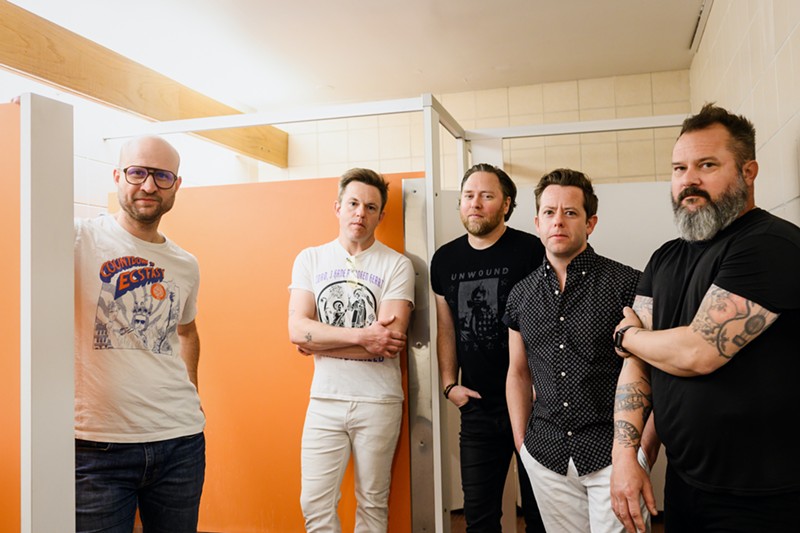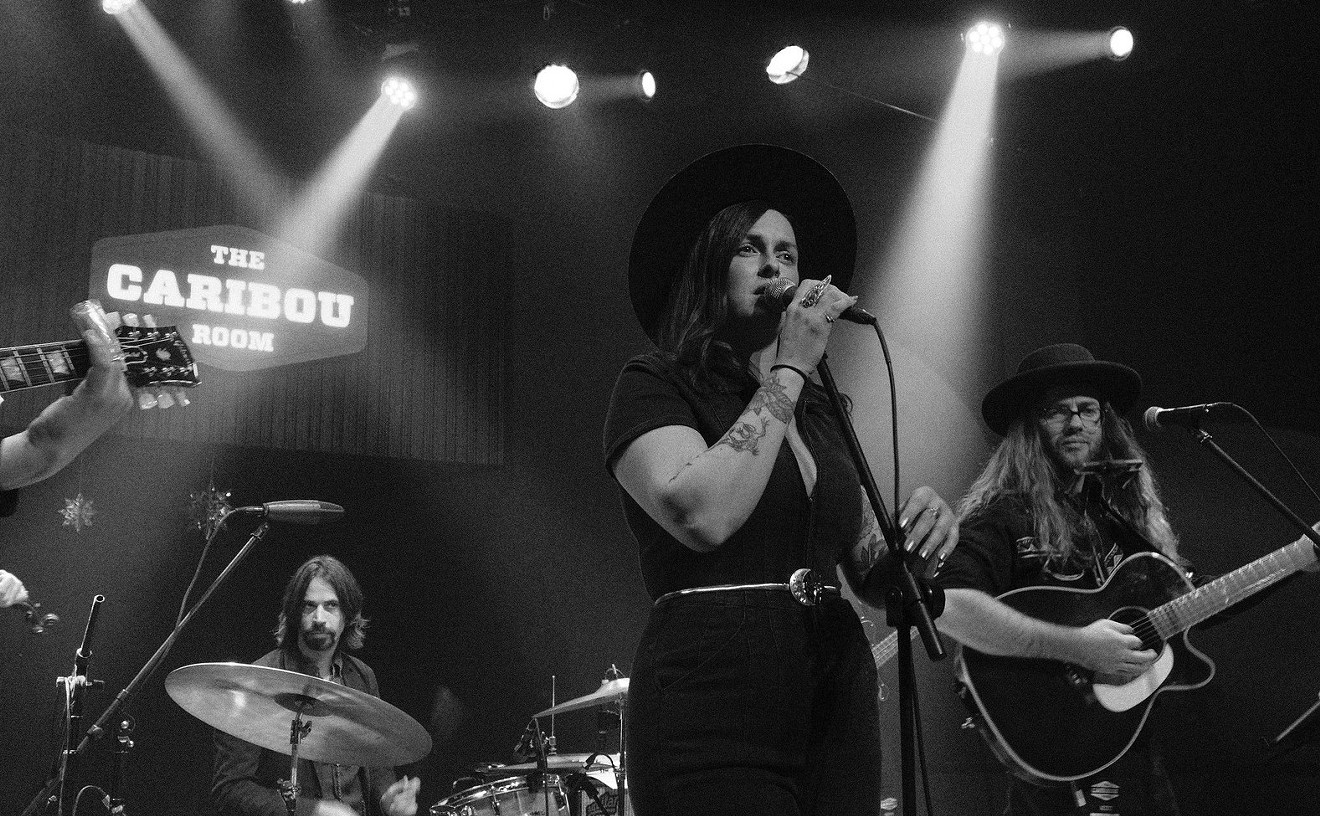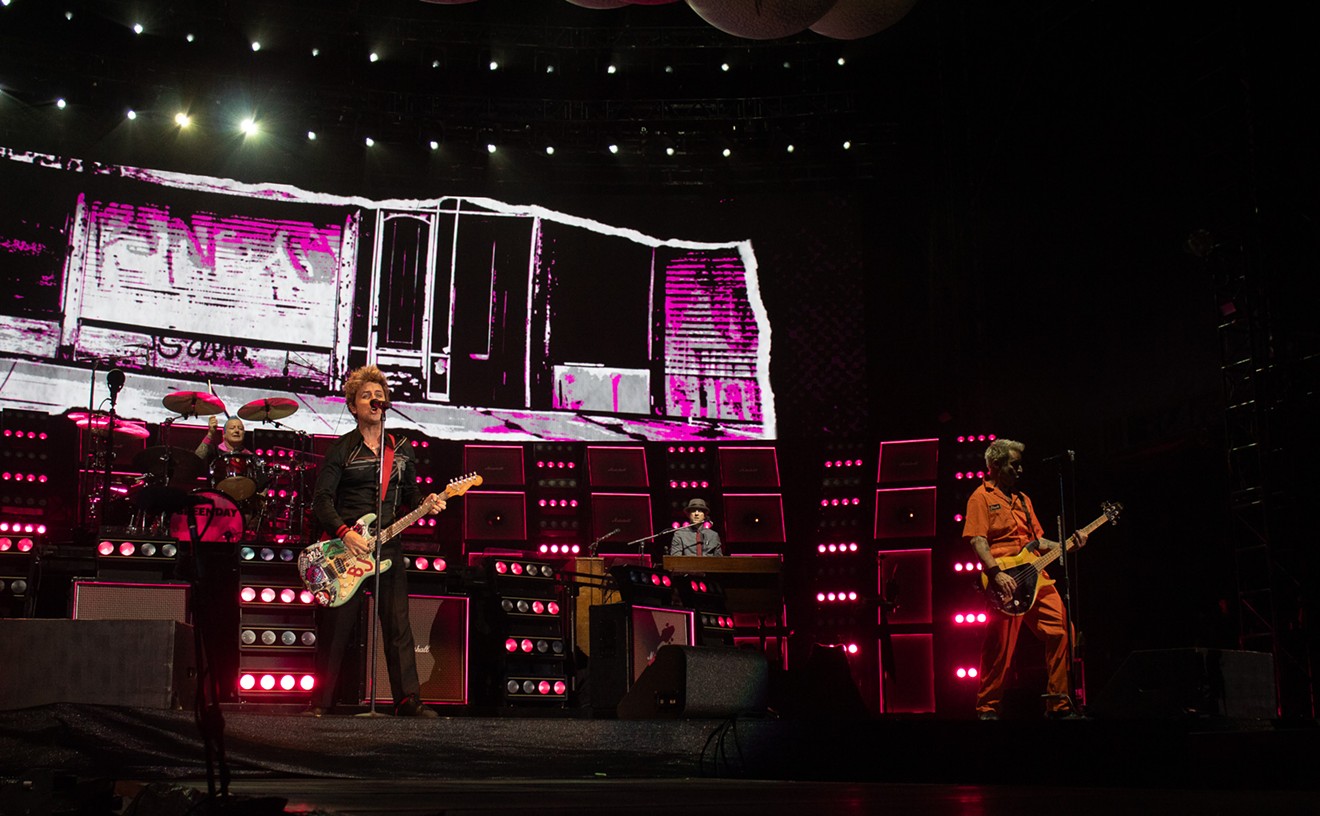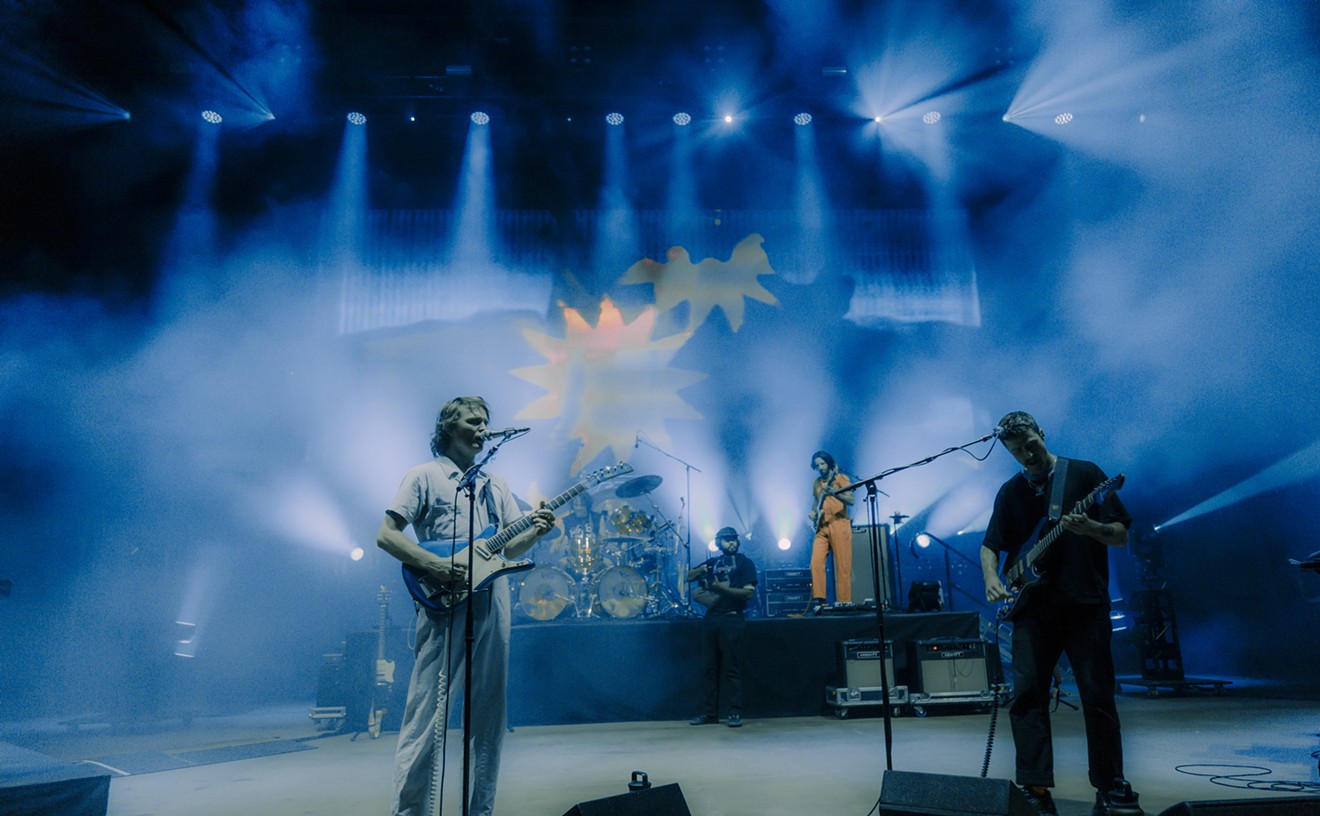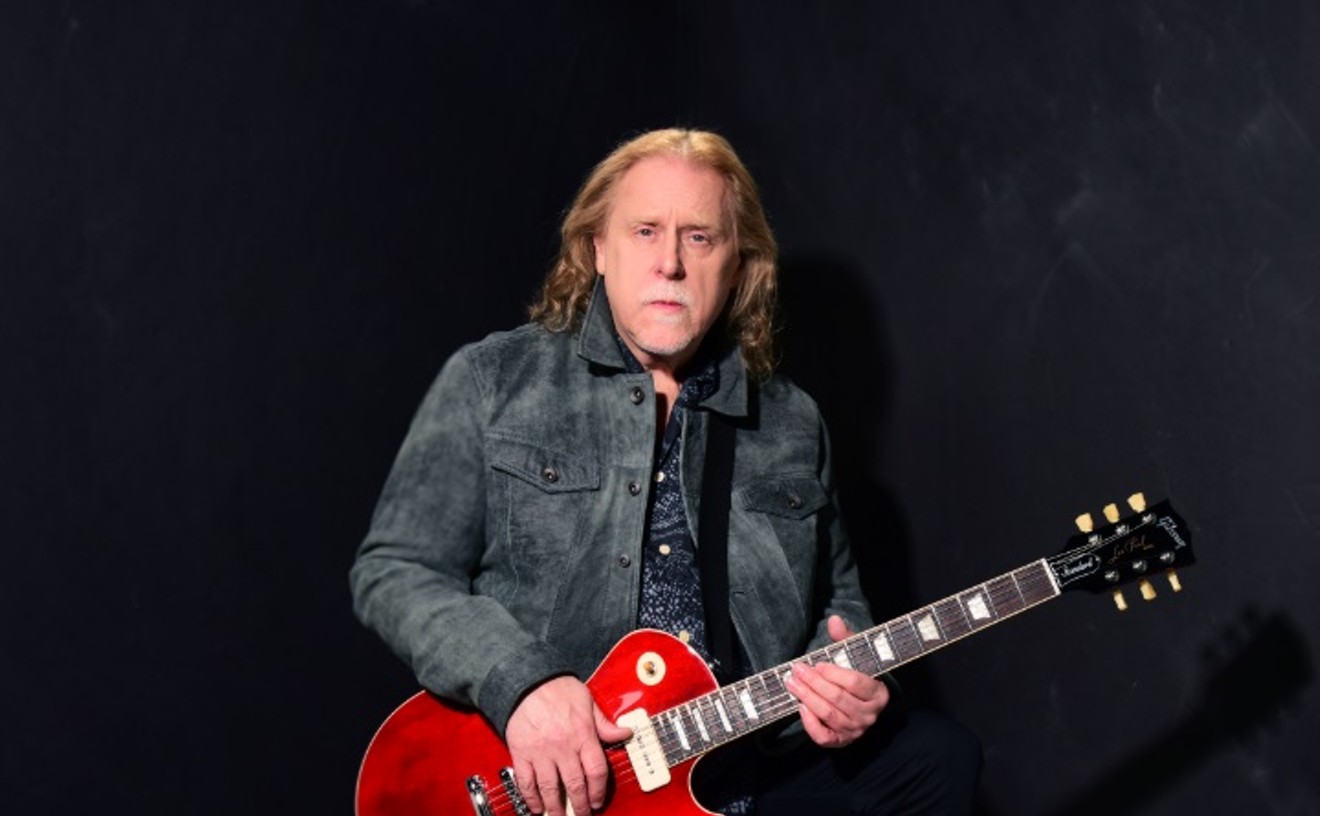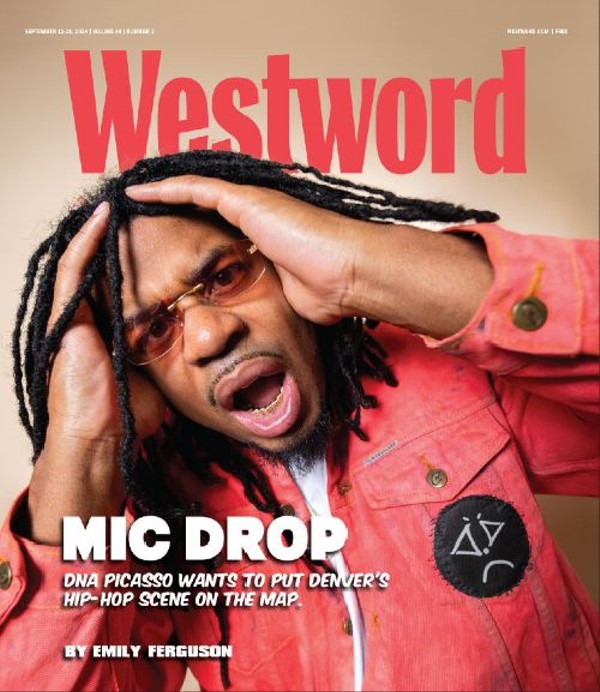The Kansas City group comes from a different corner of the alternative music underground, and while grinding it out through the mid- to late 1990s, people used to throw around the word “emo” as an insult.
“When we were coming up, it was a derogatory term,” Pryor explains. “It was like something that hardcore kids called bands in the scene that had choruses.”
So when the Get Up Kids broke through as an emo band — as the press christened them at the time — Pryor and company weren’t quick to embrace the tag and carry the flag for the subgenre, which suddenly found itself in the mainstream spotlight.
“Initially we were against the concept, but we just considered ourselves an indie-rock band,” he continues, adding that he and his bandmates were more interested in what Superchunk and Weezer were doing with their sound.
But as the influence of Something to Write Home About inspired a new generation of emo-loving pop punk through the 2000s, the Get Up Kids settled into what has been called the “second wave” of emo, or Midwest emo, alongside such peers as Jimmy Eat World and Sunny Day Real Estate. That’s more palatable to Pryor, he admits.
“I like it a little bit more that they classified it and turned it into waves, like we’re a second-wave emo band. But if your perception of emo is Hot Topic with ironed hair and eyeliner, that’s not us,” he quips.
“And even if you say ‘second wave,’ no one thinks that — if they know what you’re talking about, anyway. But if we’d get in an Uber and someone asked what kind of music [we make], we’d be like, ‘It’s punk rock.’”
Fair enough. On a sonic scale, the Get Up Kids land closer to Hüsker Dü than, say, American Football. Pryor can’t help but laugh at how history has remembered the Get Up Kids, while reminiscing on the impact that Something to Write Home About has made over the past 25 years.
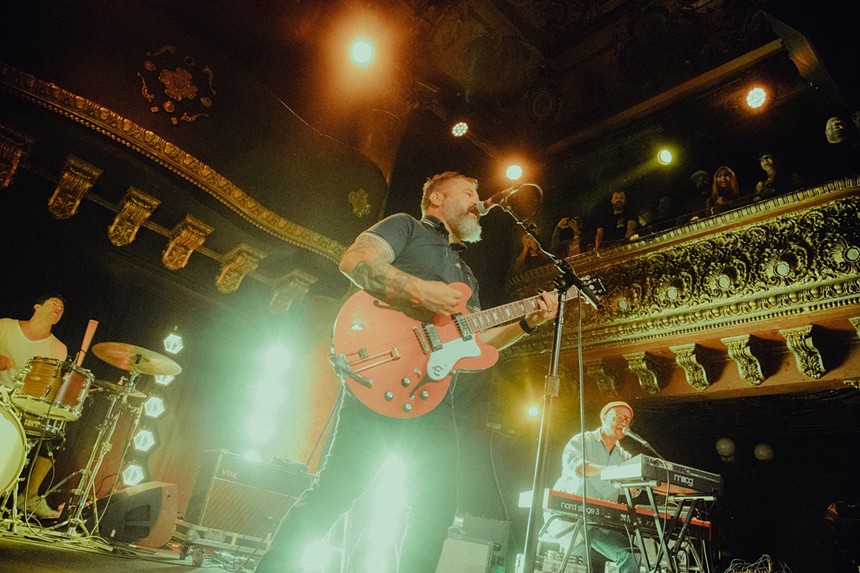
Vocalist and guitarist Matt Pryor has come to terms with the fact that his band is considered emo.
Courtesy the Get Up Kids
“That record is the reason that I can still make a living playing music. It’s our most popular record,” he says. “Even if I get — and have [gotten] — completely sick of it, I still understand its place in my career. I also understand its place in other people’s lives.
“Enough people have shown me their robot tattoos or lyric tattoos that I’m like, ‘Okay, this must mean something to you,’” he adds, referencing the album’s iconic artwork of two bots cuddling on a couch.
The band — which also includes guitarist Jim Suptic, bassist Rob Pope and drummer Ryan Pope — is celebrating the album’s silver anniversary with a tour that stops in Denver on Wednesday, September 11, at the Gothic Theatre. Chicago’s Smoking Popes will open the show. Plus, Something to Write Home About (25th Anniversary Deluxe Edition) is out digitally now and physically on September 20 via Polyvinyl Record Co.
For the younger emos, the twelve tracks that comprise Something to Write Home About are required listening, filled with Pryor’s confessional lyrics laced with heartbreak and homesickness, particularly “Holidays,” “Ten Minutes” and “I’m a Loner Dottie, a Rebel” (bonus points if you get the title’s reference). Or if you have two hours to kill, check out the band's appearance on MTV's 120 Minutes in 2000, featuring a fresh-faced Pryor wearing an At the Drive-In shirt.
Something to Write Home About was recorded in Los Angeles, a long way from their heartland hometown. The bandmates, including former keys player James Dewees, spent six weeks working on the album at Mad Hatter Studios in Silver Lake. The young musicians, who couch-surfed at a mutual friend’s house the entire time, were struggling to break free from a previous label deal and find a new one, so a lot of that resentment bled into the album, according to Pryor.
“The year leading up to it, when we were writing it, was so incredibly frustrating because we were trying to get off the label we didn’t like being on, and we kept talking to labels that had enough money to buy us out, then they kept treating us like we were children,” he recalls.
“Going into the writing of this record, I hear a lot of frustration in both the lyrics and the tenor of the songs. Then the recording process was sort of like camp. We were staying at a friend’s house in L.A., and we were all crashing on the floor and on couches, then we would drive to Silver Lake every day and spend twelve hours in the studio. It was great, but it was this weird time.”
Now 47, Pryor gives himself, and the whole emo thing, more grace and makes sure to explain how much he truly appreciates what Something to Write Home About did for the Get Up Kids and the ensuing scene. He understands the band’s place in it all, and even offers a new name to use.
“If we say emo, it’s like, ‘You guys are old.’ But we’re even older than elder emos. The elder-emo thing seems to start around 2001,” Pryor concludes. “We’d already done three records by that point, so we’re like grand-elder emos.”
The Get Up Kids, with Smoking Popes, 7 p.m. Wednesday, September 11, Gothic Theatre, 3263 South Broadway. Tickets are $45.

